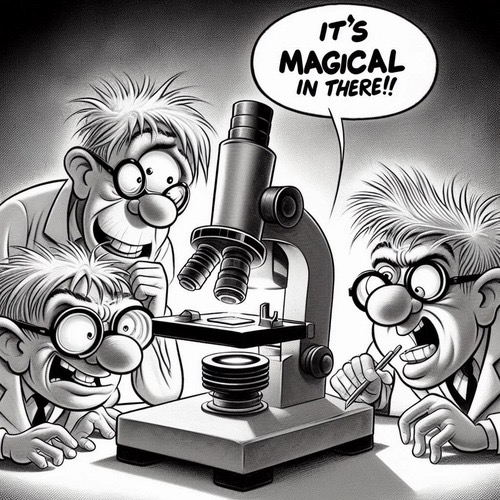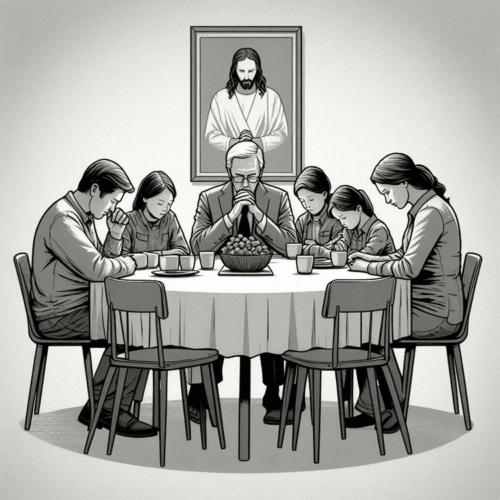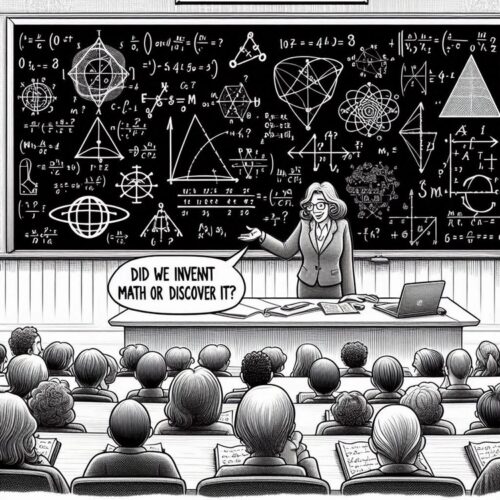Gender in Heaven: Will We Keep Our Identity in the Afterlife?
The question of whether we shall retain our gender in heaven touches deep theological truths about God’s creation, human identity, and eternal purpose. As believers seeking to understand our eternal state, let’s look to ground our answer in Scripture. And draw from the rich insights of Reformed theology.
THE CREATION ACCOUNT IS FOUNDATIONAL
To understand gender in heaven, we must begin at creation. Genesis 1:27 declares, “So God created man in his own image, in the image of God he created him; male and female he created them.” This foundational text establishes gender distinction isn’t incidental to human nature but integral to how we reflect God’s image. God pronounced this creation—which included gender differentiation—“very good” (Genesis 1:31).
Significantly, gender was established before the Fall, indicating it isn’t a result of sin, but part of God’s perfect design. This challenges the notion that gender is merely a temporary arrangement for earthly existence. Rather, it suggests gender is fundamental to human identity as God designed it.
BIBLICAL EVIDENCE FOR GENDER CONTINUITY
- Jesus’ Resurrection Body: The strongest evidence for gender continuity in heaven is Christ’s resurrection body. Jesus, after His resurrection, remained recognisably male. The disciples could identify Him, and He retained His physical characteristics while being gloriously transformed. Since Scripture teaches that our resurrection bodies will be like Christ’s (Philippians 3:21), this suggests we too will retain our gender identity.
- The Transfiguration: The Transfiguration account (Matthew 17:1-8) provides additional insight. Moses and Elijah appear recognisably as themselves, suggesting personal identity—including gender—persists in the heavenly state. This matches the broader biblical pattern where heavenly beings are consistently depicted with gender-specific identities.
- But Wait, What About Matthew 22:30? However, we must address Matthew 22:30, where Jesus states in the resurrection, people “neither marry nor are given in marriage, but are like angels in heaven.” This verse is often misinterpreted to mean we become genderless. Rather, it specifically addresses the institution of marriage, not gender identity. Jesus is teaching that marriage, which serves specific purposes in this age, will not continue in heaven because its purposes will have been fulfilled.
REFORMED PERSPECTIVES ON THE AFTERLIFE
Reformed theology has consistently maintained our resurrection bodies represent the perfection, not the elimination, of our created nature. The Westminster Confession of Faith affirms the same bodies that are laid down will be raised again, though with different qualities (WCF 32.2). This suggests continuity of personal identity, including gender.
John Calvin, commenting on the resurrection, emphasised our bodies will be restored to their true and perfect condition. He argued God’s original creation was perfect, and redemption aims to restore, not abolish, what sin has marred.
COMMON MISCONCEPTIONS ADDRESSED
Several misconceptions need addressing:
- Isn’t gender meant only for procreation? Some argue gender exists only for procreation. However, Scripture presents gender as fundamental to imaging God, transcending merely biological functions. Even before the command to procreate, gender was part of human identity.
- Aren’t spiritual beings without gender? The notion that spiritual beings are genderless contradicts biblical descriptions. Angels consistently appear as gendered beings in Scripture, though they don’t procreate.
- Doesn’t Paul say “there is neither male nor female” (Galatians 3:28)? Well, this verse addresses salvation status, not ontological reality. It speaks to spiritual standing in Christ, not the elimination of gender distinction.
THE PURPOSE OF GENDER IN ETERNITY
If gender continues in heaven, what purpose does it serve? Several aspects emerge:
- It eternally reflects aspects of God’s image through differentiation in unity
- It displays God’s wisdom in creation
- It contributes to personal identity and relationship
- It enables diverse ways of reflecting God’s glory
This understanding enriches our appreciation of gender as part of God’s eternal design rather than merely a makeshift arrangement.
PRACTICAL IMPLICATIONS
This theology of gender in heaven has significant implications for life now:
First, it affirms gender is fundamental to who we are, not a disposable aspect of human existence. This brings dignity to our embodied existence as male and female.
Second, it encourages us to value and celebrate gender differences as reflections of God’s wisdom, while rejecting cultural distortions of gender.
Third, it offers hope to those struggling with gender identity by pointing to God’s good design and the promise of resurrection clarity.
CONCLUSION
Reformed theology, grounded in Scripture, suggests we shall retain our gender identity in heaven, though transformed and perfected. This reflects God’s good creation, Christ’s resurrection, and the nature of redemption as restoration rather than elimination of created distinctions.
This understanding calls us to embrace our gender identity as part of God’s good design, looking forward to its perfection rather than its abolition. In eternity, we will experience gender as God intended it—free from sin’s distortions and perfectly oriented toward His glory.
While questions about the exact nature of our resurrection existence remain, we can be confident our eternal state will perfect—not erase—the fundamental aspects of our created identity, including gender. This truth brings comfort, affirms dignity, and directs us toward grateful acceptance of God’s design.
FOR FURTHER STUDY
For a deeper exploration of this topic, consider these resources:
- Calvin’s Institutes, Book III, Chapter 25
- The Christian’s Hope: The Anchor of the Soul by Calvin Beisner
- Raised in Glory: Resurrection and Gender by Herman Bavinck
GENDER IN HEAVEN—RELATED FAQs
If our resurrection bodies are ‘spiritual bodies’ (1 Corinthians 15), doesn’t this mean they transcend physical gender? A spiritual body doesn’t mean a non-physical or genderless body, just as Christ’s resurrection body wasn’t non-physical. Paul’s term “spiritual body” refers to a body fully energised by and responsive to the Spirit, not to a disembodied or non-material state. Our resurrection bodies will be more real and substantial than our current bodies, not less, suggesting that gender—as part of our fundamental created identity—will likewise be more fully realised rather than diminished.
- Will people who experienced gender dysphoria on earth finally feel at peace with their gender in heaven? In heaven, all effects of the Fall—including the disconnection between our bodies and our self-perception—will be fully healed. While we can’t specify exactly how this healing will manifest, we can trust our resurrection existence will bring perfect harmony between our identity and God’s design. This offers profound hope to those struggling with gender dysphoria, promising not the elimination of gender but its perfection and healing.
- Since gender roles are different across cultures, what aspects of gender identity will we carry into heaven? While cultural expressions of gender vary, Scripture suggests there are fundamental aspects of gender that transcend culture and reflect God’s design. In heaven, we can expect these essential aspects of gender to remain while cultural accretions and sinful distortions fall away. The result will be a pure expression of gender that perfectly reflects God’s creative intent, freed from both cultural limitations and fallen corruptions.
- Will there be different roles or responsibilities for men and women in heaven? While Scripture doesn’t directly address gendered roles in heaven, we know heaven involves meaningful activity and service to God. Rather than current earthly role distinctions, heavenly responsibilities will likely reflect our perfected natures and gifts, with gender continuing to shape our service in ways that perfectly glorify God. Our focus will be on worship and service rather than authority structures that characterise our fallen world.
How will intersex conditions be resolved in resurrection bodies? The resurrection promises the perfection of our bodies according to God’s original design, suggesting developmental variations—such as intersex conditions—will be resolved in harmony with God’s perfect plan for each person. This resolution will bring clarity and joy rather than loss of identity. While we can’t specify exactly how God will perfect each person’s body, we can trust each resurrection body will perfectly express the individual’s true, God-given identity.
GENDER IN HEAVEN—OUR RELATED POSTS
Editor’s Pick

More than Conquerors: Gospel Victory in Fighting Temptation
THE FALL, THE CONSEQUENCES, THE DELIVERANCE The story of temptation is as old as humanity itself. In the perfect garden [...]

Why Didn’t Jesus Come Before Noah’s Flood? God’s Perfect Timing…
Why Didn’t Jesus Come Before Noah’s Flood? Salvation-wise, How Does It Matter? When considering the timing of Christ’s incarnation, we [...]

What Roles Do Angels Play In God’s Providence? What The Bible Teaches
What roles do angels play in God's providence? When we think of angels, our minds often drift to romanticised images [...]

Satan’s Lie Exposed: Is God Egotistical To Demand Our Worship?
Satan first planted this destructive seed of doubt back in the garden of Eden. His original lie, whispered to Eve [...]

Living With Biblical Integrity: Puritan Wisdom For Our Times
Picture for a moment the desk of a Puritan divine: a worn Bible, carefully annotated; a journal recording daily self-examination; [...]
What Does it Mean to Love Jesus More than Family? The Surprise Answer…
In Matthew 10:37, Jesus makes one of His most challenging statements: "Anyone who loves their father or mother more than [...]

Meeting Jesus in Glory: Will He Have a Physical Body?
It’s a question we’ve all thought of at some point: What exactly will we see when we finally meet Jesus? [...]

The God Equation: Quantum Physics and the Evidence for Design
Quantum Physics and the Evidence for Design Few areas of science are as intriguing—even perplexing—as quantum mechanics. It explores the [...]
Does Math Reveal the Mind of God? The Divine Design in Numbers
When Galileo declared mathematics is the language in which God wrote the universe, was he merely waxing poetic? Consider this: [...]

What Does It Mean To Be God’s Temple?—A Biblical Deepdive
The magnificent temples of the ancient world stood as monuments to divine presence—grand structures of stone and gold where heaven [...]







